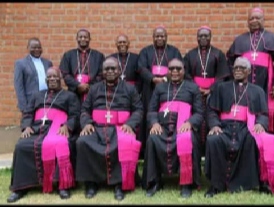By Burnett Munthali
In a significant development in Malawi’s political landscape, President Lazarus Chakwera has appointed Vitumbiko Mumba as the new Minister of Labour. This comes after the resignation of former Minister Agnes Nyalonje in July 2024. The announcement was made by President Chakwera during an address to the nation, marking a pivotal moment in the government’s ongoing reshuffle.
Mumba’s appointment holds considerable weight, as he steps into a ministry that plays a critical role in shaping the country’s workforce policies, protecting workers’ rights, and addressing the growing employment challenges faced by many Malawians. The Ministry of Labour has a heavy responsibility, especially in a nation grappling with high unemployment rates, an expanding informal sector, and the need for robust labor laws that can effectively cater to the modern workforce.
Agnes Nyalonje’s resignation earlier this year left a void in the Ministry of Labour, and Mumba’s appointment signals President Chakwera’s commitment to filling that gap with someone who is both capable and experienced. Mumba, who takes over the helm at a time when labor issues are more pressing than ever, will be tasked with advancing the government’s agenda to tackle unemployment, improve the working conditions of employees, and establish a fairer labor market for all Malawians.
The timing of this appointment is crucial. With Malawi heading into another election year, the issue of jobs and the labor market has taken center stage. As such, Mumba’s leadership will be essential in navigating the complexities of the sector. The country’s labor laws need urgent review to keep up with international standards and address issues such as decent wages, job security, and workplace safety, all of which are vital to the nation’s socio-economic development.
Vitumbiko Mumba enters the Ministry of Labour at a time when there is growing frustration among citizens regarding employment. Malawi’s youth, in particular, has been vocal about the lack of job opportunities, with many seeking employment outside the formal sector or even leaving the country in search of better prospects. Mumba’s role will therefore focus on creating a more inclusive economy by ensuring that policies are put in place to generate sustainable jobs, particularly for young people.
Another significant area that Mumba will need to address is the issue of workers’ rights. Malawi has a growing informal labor market, and workers in this sector often lack the basic protections and benefits that are standard in more formal employment. As the new Minister, Mumba will need to advocate for and ensure that labor laws are effectively enforced and that workers in all sectors are treated fairly.
Furthermore, there is an urgent need to strengthen the relationship between labor unions, employers, and government institutions. Mumba’s leadership will require building consensus among these diverse stakeholders to ensure harmonious industrial relations. His success in this area will be critical in reducing industrial actions and fostering an environment that supports both the employer’s and employee’s interests.
With Mumba now in charge, the focus will be on a few key areas. First, he will likely oversee reforms in the country’s labor laws to bring them in line with international conventions, ensuring that Malawi becomes a more attractive destination for both domestic and international investment. Additionally, ensuring that economic growth translates into more jobs for Malawians is likely to be one of his main goals.
Mumba will also face the challenge of ensuring that job creation is aligned with the country’s education system. Malawi’s young population requires skills that meet the demands of the modern job market. A stronger link between education, vocational training, and the labor market will be essential to making sure that graduates are not only prepared for employment but also equipped to contribute to the country’s economic growth.
Another challenge will be to address the issue of labor migration. With thousands of Malawians seeking work abroad, particularly in the Middle East and South Africa, Mumba will need to ensure that those who choose to migrate are protected by strong labor agreements and safeguards that guarantee their rights and welfare abroad.
Mumba’s appointment signals the administration’s continued commitment to rejuvenating its leadership, especially as it approaches the upcoming election cycle. His fresh leadership is seen by many as a positive step toward stabilizing the country’s workforce issues. Mumba brings with him a wealth of experience and a strong sense of urgency, which will be necessary for tackling the numerous challenges facing Malawi’s labor market.
The expectations placed on Mumba are high. However, his ability to balance the needs of workers with the realities of the business environment will determine whether he succeeds in addressing the pressing issues that many Malawians face in the labor sector.
As Vitumbiko Mumba takes charge of the Ministry of Labour, all eyes will be on him to deliver meaningful change in one of Malawi’s most crucial sectors. With a growing population, an expanding youth demographic, and a volatile job market, Mumba’s leadership could play a key role in shaping Malawi’s future labor landscape. If successful, his tenure could leave a lasting impact on the country’s socio-economic development, creating a labor market that works for everyone—employers and employees alike. As the country moves forward under Mumba’s stewardship, it is hoped that his efforts will not only address current concerns but also lay a foundation for a more prosperous and equitable Malawi.




